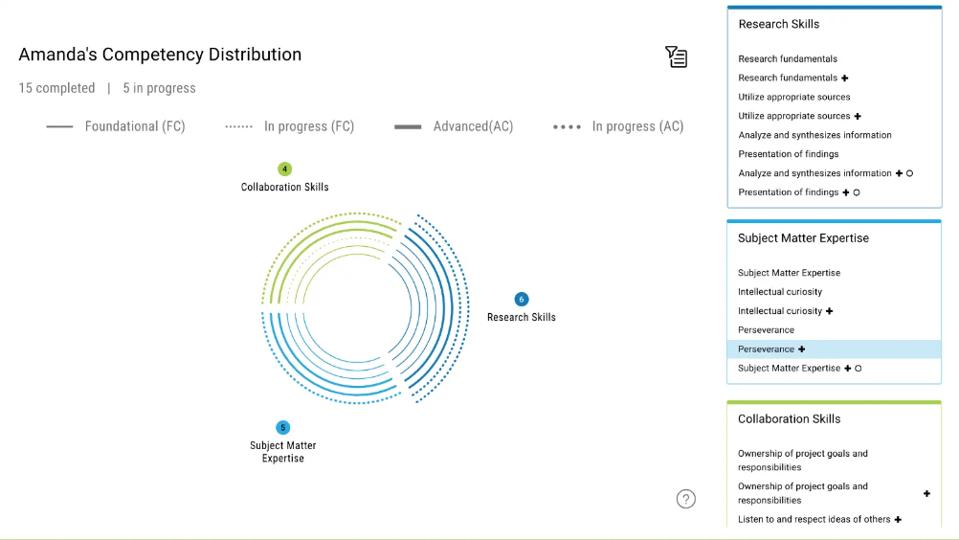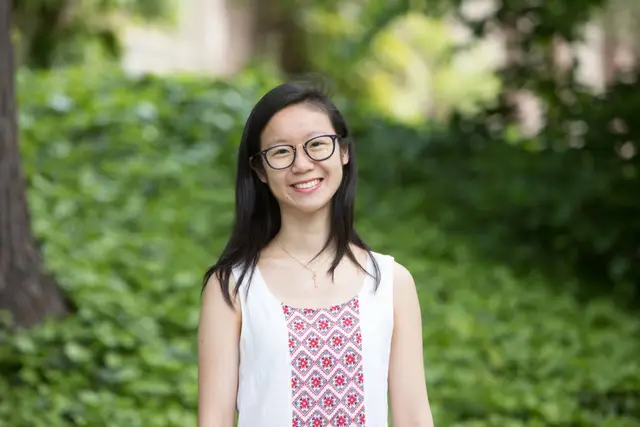Mastery Transcripts: Redefining Intelligence and How we Measure it
2 minute read
DISCLAIMER
This article was originally posted at Forbes.com on June 13th 2024.
This summer, the world of college admissions is under the magnifying glass for what seems to be the nth time over the past few years. Some highlights from 2024 include this application cycle’s infamous FAFSA (Free Application for Federal Student Aid) application debacle, which delayed access to vital aid to millions of students for months . Throughout the year, elite universities have also been falling like dominoes in their reversal of the COVID era policy of test-optional admissions, requiring standardized test results again as part of applicants’ profile. Legacy admissions is also next in line to be under intense scrutiny, with California’s proposed state-wide ban leading the charge.
A proven college admissions edge
Polygence alumni had a 89% admission rate to R1 universities in 2024. Polygence provides high schoolers with a personalized, flexible research experience proven to boost their admission odds. Get matched to a mentor now!"
Amidst wave after wave of seismic changes affecting college admissions, what has remained constant is the achievement culture that underpins this entire industry. This phenomenon and its nefarious effects are discussed in depth in Never Enough, an investigative book by journalist Jennifer Wallace. In her recent webinar with Polygence, she peels back the many layers of the immense pressure placed on our students to achieve - something that is exacerbated by ever dwindling acceptance rates at elite colleges and generational changes to parenting. In fact, students are spending so many of their formative years playing this game of academic profile engineering that they barely give any attention to developing their authentic identities. What ends up happening is that they, with the support of an entourage of counselors and parents, are packaged into highly engineered applicant profiles that reflect hundreds of hours or time and thousands of dollars – all to receive 8 minutes of attention from an admissions officer on the other side of the desk. Those who are lucky to arrive at the doorstep of their dream college may realize that after all of that brand construction, they don’t actually know who they are or what they care about. They’ve perfected the art of the performative rat race but have lost touch with their authentic self. In a world where achievement engineering is the norm and not the exception, intellectual authenticity - something once taken for granted just a generation or two ago - has become the holy grail in admissions.
How can we empower students to become authentic thinkers instead of pressuring them to conform to a handful of sought-after profiles? The answer is to give them permission. Intelligence comes in so many different shapes and forms - we need to show our students that we live and breathe this conviction and that there is no hidden hierarchy ranking the relative value of each type of intelligence. Harvard psychologist Howard Gardner developed the theory of Multiple Intelligences in the late 1970’s and early 1980’s as a direct critique of the standard psychological view of intellect - that there is a single type of intelligence measured by IQ quizzes or other short answer tests. In this theory, Gardner formulates 8 types of intelligence - spatial, bodily-kinesthetic, musical, linguistic, logical-mathematical, interpersonal, intrapersonal, and naturalist, and argues that no one type is inherently superior to another. This challenges the widely held belief that the two types of intelligences that are measured by IQ tests - logical-mathematical and linguistic - are more critical than others.
At Polygence this way of thinking about human intelligence is so foundational to our mission that it inspired our name (Poly - meaning “multiple”; and -gence - from “intelligence”). As the only research platform that supports humanistic, artistic, and creative projects in addition to traditional STEM projects, we celebrate and empower students to explore the world in all possible ways. It is a widely held misconception that research can only be done in labs by researchers in white lab coats and that the only acceptable way of showcasing the results of such inquiry is long-form academic papers peppered with citations. That is not only an overly restrictive view of research, but at times a harmful one that motivates students who are otherwise not intellectually passionate about STEM to force themselves into STEM research. Furthermore, research and its role in education remains relatively opaque in society - not many outside academia have a strong grasp of just how critical of an activity it is in advancing human knowledge and developing critical thought in our next generation. Knowing it ourselves is the first step in making this type of inquiry accessible to learners around us. Broadly speaking, research is any activity that broadens the horizon of human knowledge through one or more of the 8 intelligences. Composing a new song is as much a form of research as producing a podcast about dementia, just as animating a short film about environmental toxins is as worthy of a research topic as a paper about gene therapy as a treatment for cancer.
There are 2 major implications of Gardner’s theory in education: individuation and pluralization. Free form student-driven research as offered at Polygence is the best way of delivering on both of these promises. Individuation calls for the personalization of a project’s scope to the student’s specific interests and skill level. it takes into account the most effective ways that individual students learn and tailors the material and pedagogical approach accordingly. This tenet also harkens back to Benjamin Bloom’s famous 2 Sigma Problem, where he demonstrates that students tutored in one-on-one settings perform two standard deviations better than those in traditional classroom settings. Pluralization, on the other hand, calls for the presentation of the same concept in various formats that appeal to different forms of intelligence. This greatly expands the reach of any given topic, but also exposes students to diverse ways of thinking and learning.
This is also a fundamental reason why Polygence has recently cemented a partnership with Mastery Transcript Consortium. In order to fully take advantage of the permission to find themselves rather than to conform to narrowly defined molds, students need to be freed from the constant fear of being judged. Mastery based assessment is not about assigning a numerical value to a student’s achievement, nor is it about judging a student’s ability relative to his peers; rather, it’s about giving students the language to speak about the skills and competencies they developed through the experience of personalized research.
This way of assessing students is based on an absolute scale of abilities whereas traditional grades only ever identify a student’s standing relative to peers. Rather than telling a college that a given applicant ranked 3rd in her class and is in the 98th percentile for verbal reasoning abilities, a mastery-based learning record brings to life that student’s abilities through qualitative descriptions, thereby giving colleges a more three-dimensional picture of its potential students. This will be a welcome change in the sea of cookie-cutter applications and identical test scores that flood admissions officers every year.

No matter where this series of changes to the college admissions landscape takes us, it remains our responsibility to ensure that the next generation arrives at college with a clarified rather than a muddied sense of their intellectual identity. The Latin etymology of the word “educate” breaks down into ducere, meaning “to lead”, and e(x), meaning “out/out of”. Leading out of what? You may ask. I have always been inspired to interpret it as “to lead a learner out of darkness”. The journey of self discovery and enlightenment has sadly become so elusive in this hypercompetitive world of elite admissions, and we now find ourselves in a world where students are woefully unprepared to tackle the challenges of the workforce and of adulthood because they barely know what they are capable of. And they are capable of so much more than we give them credit for.
